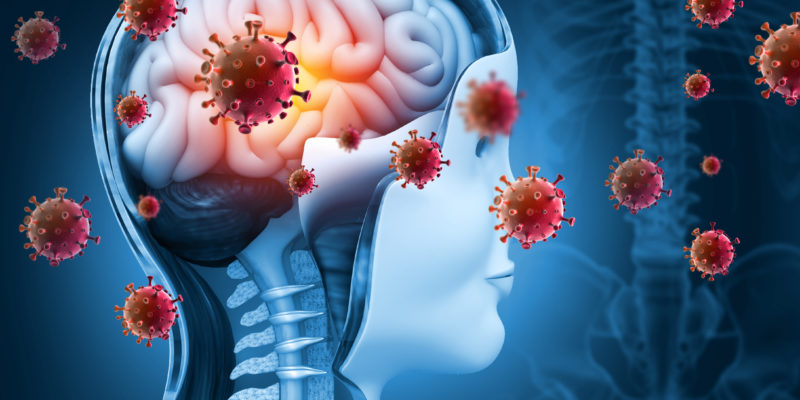Is your child struggling in school despite additional support or interventions? Academic challenges can sometimes…

COVID Related Neurological Problems
The more we learn about COVID-19, the more aware we become of some of its long-term impacts. Not surprisingly, many of those impacts are neurological. Popularly, people describe many of these symptoms as “COVID brain,” which may refer to a general slowness people experience in terms of mental processing in the weeks and months following infection with COVID-19. However, COVID-19 may do more than slow down your thought processes, and the effects may be longer-term than people realize. While science is developing, what we know so far suggests that COVID could have semi-permanent or permanent effects on the brain.
We already know that COVID-19 impacts the central nervous system. This is apparent when you look at the original cluster of COVID-19 symptoms, which include the loss of taste and smell. That symptom is a warning sign that COVID is impacting the brain. Rather than short-term changes, it appears that COVID can actually change the brain’s structure and electrical networking.
While some people may fully recover from COVID-19, others may experience a long-term impact. We believe this is due to a neuroinflammatory syndrome that is linked to COVID. While this syndrome may not be sufficient to create noticeable symptoms in most people, it can unmask or exacerbate existing neurological conditions in others. The effect is cumulative, with COVID highlighting an existing vulnerability.
The long-term impacts of COVID can range from mild to severe. They include, but are not limited to, changes in
- Multitasking ability
- Memory
- Working memory
- Attention
- Taste
- Smell
COVID is also linked to emerging epilepsy. While many people think of epilepsy as a binary disease, someone either has seizures or they do not have seizures, it is better described as a spectrum disease. Some people with epilepsy experience indicators that most laypeople do not recognize as seizures, such as absence seizures. COVID can exacerbate those symptoms and result in people presenting with more stereotypical signs of epilepsy. In addition, because of how COVID can change the brain’s electrical networks, it may even be able to cause epilepsy in people without a preexisting predisposition.
The good news is that a neurologist can help you manage post-COVID brain changes. If you think that you are suffering from long-term COVID brain changes, contact us today. We can schedule an evaluation and help develop a treatment plan to deal with your long-term COVID symptoms.
Neurology Knowledge Center – What are some COVID related neurological problems



